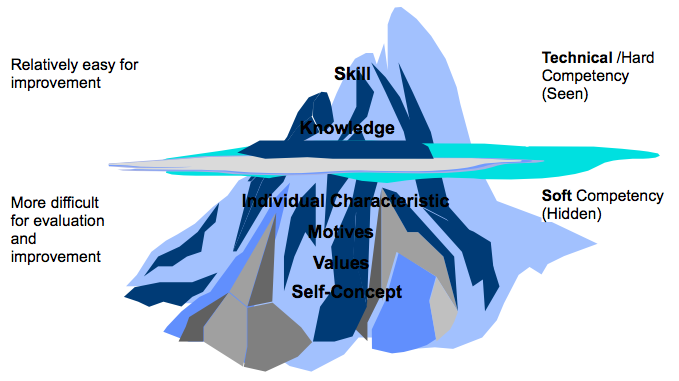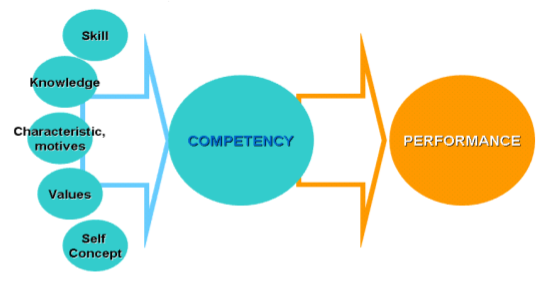Concept
The concept of competency was first introduced by David McClelland. From his study, he concluded that knowledge and academic tests, like at the school level, can not predict the success of someone in his or her job or life.
If it is not intelligence, what can predict a success? Through his research, McClelland compared successful people with those who are less successful to identify the characteristic of success. This characteristic is called competency.
Competency is defined as knowledge, skill, personal character, self-concept, values and motives needed by someone to do his or her job successfully.
The concept of competency can be described as an iceberg phenomenon, in which the aspects that mostly distinguish the success of someone, such as motive, values, self-concept, are generally aspects that are hidden, difficult to be evaluated and to be improved. On the contrary, knowledge and skill are aspects that are seen, so it is easier to evaluate and improve them. In practice, the seen aspects are frequently called Technical/Hard competency, while the hidden aspects are called Soft competency.

The relationship between competency and achievement

The types of competency applied at MCCI are as follows:
- General Competency
- Related to the organization (visions, missions, values and strategies of the organization).
- Applied on all positions, so it will describe the company’s culture
- Consists of soft and technical competency
- Managerial Competency
- Related to the position and role that must be operated by the managerial functions
- Consists of soft and technical competency
- Specific Competency
- Related to the position and describes the assignment and the working output
- Consists of technical competency
